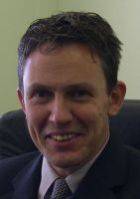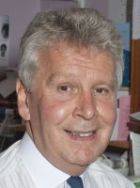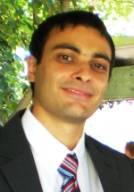We aim to facilitate the pathway for access, storage, use and transfer of human organs, cells and tissue between clinical centres within UCL Partners, academic groups in UCL, other universities, hospitals, medical researcher and biotechnology companies, to enhance the ability for researchers to access the materials they need. Alongside this, researcher will be able to exchange information and access guides on regulatory, ethics and practical issues concerning access, transfer and use of this type of material. These guides will be video and documents format, based on talks at organised events given by experts in the relevant fields. All of this information will be accessible on a website that seeks to link groups within UCL and attract attention from the wider world through social media and expansion of existing contacts

Brian Davidson is Professor of Surgery at UCL, as well as consultant surgeon at both the Royal Free and Wellington Hospital. His research interests include liver viability, perfusion and preservation, and the molecular basis and treatment of hepat-pancreato-biliary cancers.
- His work is at the interface between academic research and applied biotechnology, and also newer fields of bio-banking.
Email Brian (opens email software)

Barry Fuller is Professor of Surgical Sciences in the Division of Surgery & Interventional Science, at the Royal Free Hospital and is the current President of the International Society for Cryobiology, and a lead professor in a global virtual network, under the auspices of the UNESCO Chair in Cryobiology
- His remit with UNESCO is to share knowledge and assist groups in restructuring countries that are setting up their own infrastructure for tissue banking or organ procurement for transplantation.
One of his primary research aims is to show how low temperatures can be used in the clinic to maximise the quality of both transplant organs and tissues, and also to control biological change. this includes interest in:
- low temperature preservation of cells
- tissues and organs for clinical applications
- effects of ischaemia / reperfusion injury in surgery
- organ-specific metabolic effects of chemotherapy
- surgery and transplantation; liver and pancreas studies
- translational research on hypothermic liver perfusion for transplantation
- stem cells and tissue engineering in hepatic support and vascular biology
This understanding of the essential processes and procedures required in organ donation has encouraged him to think about access and availability of human cells and tissues for ethically-approved research in a broader context, and to start a collaboration with surgical colleague.
Email Barry Fuller (opens email software)

Dr Amir Gander is the lead individual for Tissue Access for Patient Benefit (TAPb) a UCL initiative to bring surplus human tissue from surgery and biobanks to researchers across UK and internationally. After completing a degree in Molecular Biology at UCL, he worked in the chemical and pharmaceutical industry for a number of years. He worked in the fields of quality management and regulations then specialising in the development of bench scale drug fermentation techniques to large production scale at a large pharmaceutical production plant. Following this, he complete his PhD in Bioengineering, which involved development of a system to manage plasma quality re-entering a patient as part of a bioartificial liver medical device (to treat liver failure by passing blood through a chamber containing living liver cells).
TAPb has established a network of researchers interested in tissue from specific disease pathways. In collaboration with the state-of-the-art biobank at the Royal Free Hospital London, we have started to supply tissue (with clinical information) to a number of research companies, with ever expanding tissue types becoming available. Strong collaboration with public and private sector researchers, we seek to develop a bespoke service with the ability to utilise in-house accredited processing methods.
email: a.gander@ucl.ac.uk
 Close
Close

